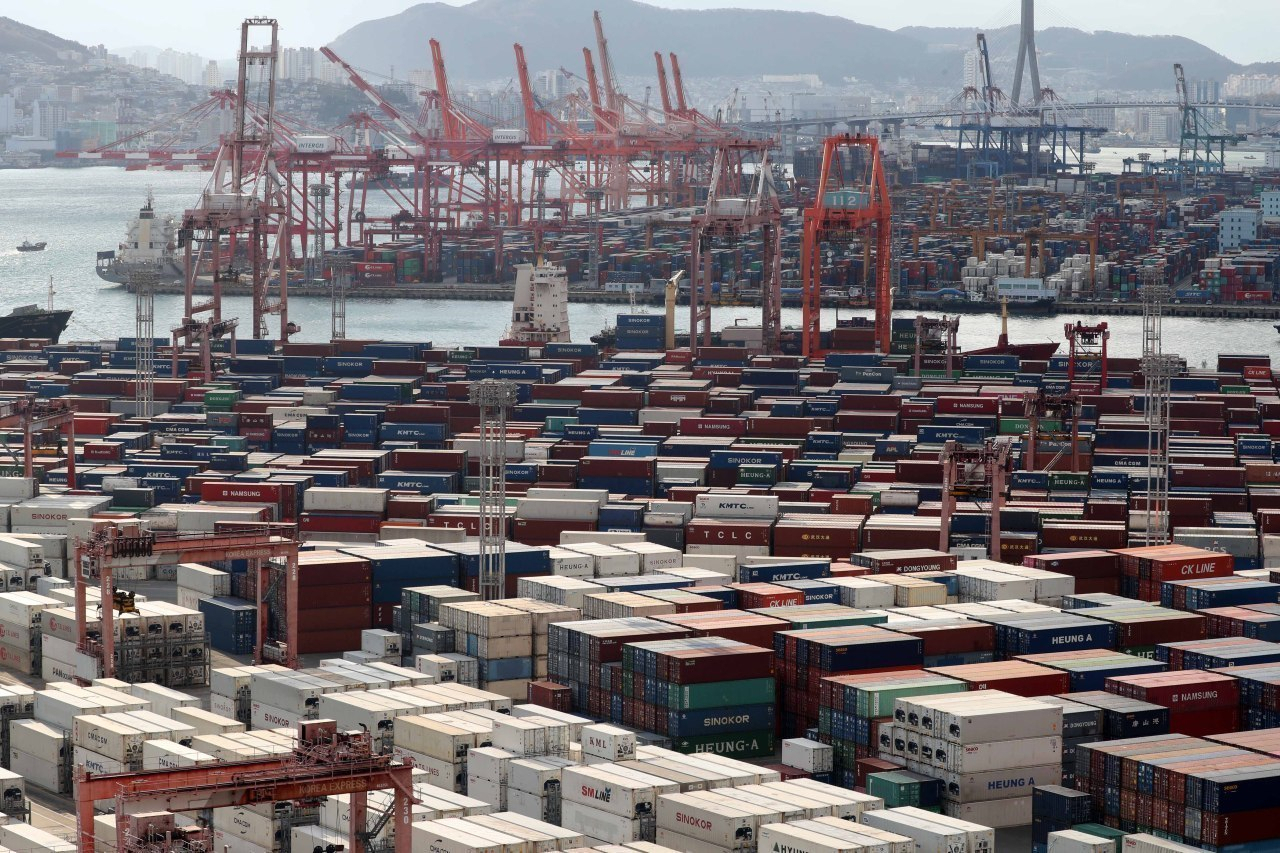
The South Korean economy faces increased downside risks due to high inflation and worsening external economic conditions, a state-run think tank said Sunday.
Asia's fourth-largest economy is on a mild recovery track, but downside risks are expanding in the manufacturing industry due largely to economic slowdowns in the US and China, the Korea Development Institute (KDI) said in a monthly economic assessment report.
"External conditions have deteriorated as China's economic growth slowed significantly and the US economy posted quarterly contraction. The spillover effect of rate hikes is weighing heavily on overall economic activity," the report said.
Concerns about stagflation, a mix of slowing growth and high inflation, have mounted due to heightened economic uncertainty from the protracted war between Russia and Ukraine and the Federal Reserve's aggressive rate hikes.
South Korea's exports rose 9.4 percent on-year in July, extending their gains to the 21st consecutive month. But the country suffered a trade deficit for the fourth straight month over high global energy prices.
The government earlier said the Korean economy is feared to lose steam as heightened external economic uncertainty could dent investment and export growth.
Fears about a global recession have risen due to worries that the Fed's aggressive monetary tightening could cause the US economy to slip into a recession.
South Korea also faces growing inflationary pressure due to high energy and food prices and a rebound in demand from the pandemic.
Consumer prices soared 6.3 percent last month from a year earlier, the fastest on-year rise in almost 24 years and accelerating from a 6 percent on-year spike in June.
Rising inflation erodes people's purchasing power and could weigh on private spending. A rate hike is meant to curb inflation, but it could increase debt-servicing burdens and slow down economic growth.
The country's retail sales declined for the fourth straight month in June as elevated inflation and rising interest rates weighed on consumer sentiment, according to the statistics agency.
In July, the Bank of Korea (BOK) delivered an unprecedented 0.5 percentage-point rate hike in a bid to tame inflation, marking the sixth rate increase since August last year. The central bank is widely expected to further raise the policy rate in the coming months.
The government cut its 2022 economic growth outlook to 2.6 percent while sharply raising its inflation forecast to a 14-year high of 4.7 percent. The BOK forecast the economy to grow 2.7 percent and inflation to rise 4.5 percent this year. (Yonhap)









![[Kim Seong-kon] Democracy and the future of South Korea](http://res.heraldm.com/phpwas/restmb_idxmake.php?idx=644&simg=/content/image/2024/04/16/20240416050802_0.jpg&u=)








![[KH Explains] Hyundai's full hybrid edge to pay off amid slow transition to pure EVs](http://res.heraldm.com/phpwas/restmb_idxmake.php?idx=652&simg=/content/image/2024/04/18/20240418050645_0.jpg&u=20240418181020)

![[Today’s K-pop] Zico drops snippet of collaboration with Jennie](http://res.heraldm.com/phpwas/restmb_idxmake.php?idx=642&simg=/content/image/2024/04/18/20240418050702_0.jpg&u=)